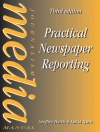The book concerns the ways in which the new media shape communication along with educational expectations and practices in foreign language classrooms. Although foreign language learners have cheap and easy access to information and ways of communication, they also wrestle with problems that have always accompanied language learning. The focus of the book is two-fold. On the one hand, the authors demonstrate how using social networks, videoconferencing, mobile phones, wikis, and computer-mediated interaction contributes to the development of language skills, negotiated interaction, autonomy, and intercultural competence. On the other, they discuss “old” issues pertaining to the role of vocabulary, corrective feedback, textbooks and inner speech in the process of language learning and use. Every chapter reports original empirical research on issues related to the new media and old problems in foreign language teaching contexts in various countries, and with respect to various age groups.
Inhoudsopgave
Part I New Media and Foreign Language Development.- Multimedia in Learning English as a Foreign Language.- Advanced Learners’ Intercultural Experience Through Computer-enhanced Technology.- Wikis and New Perspectives for Collaborative Writing.- The Foreign Language Classroom in the New Media Age.
- E-mail, Facebook and a Mobile Phone as Essential Tools.-
Facebook to
Facebook Encounters in Japan.-
Part II Old Problems in Foreign Language Development.- Communicating with Oneself.- The Effectiveness of Written Corrective Feedback in the Acquisition of the English Article System.- Formal Instruction in Collocations in English.- Some implications for developing learners’ figurative language competence across modalities.- Design and Style of Cultural and Media Studies Textbooks for College Students.- Towards Teaching English for Pharmaceutical Purposes












